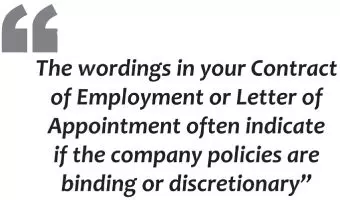- Home
- News
- Articles+
- Aerospace
- Artificial Intelligence
- Agriculture
- Alternate Dispute Resolution
- Arbitration & Mediation
- Banking and Finance
- Bankruptcy
- Book Review
- Bribery & Corruption
- Commercial Litigation
- Competition Law
- Conference Reports
- Consumer Products
- Contract
- Corporate Governance
- Corporate Law
- Covid-19
- Cryptocurrency
- Cybersecurity
- Data Protection
- Defence
- Digital Economy
- E-commerce
- Employment Law
- Energy and Natural Resources
- Entertainment and Sports Law
- Environmental Law
- Environmental, Social, and Governance
- Foreign Direct Investment
- Food and Beverage
- Gaming
- Health Care
- IBC Diaries
- In Focus
- Inclusion & Diversity
- Insurance Law
- Intellectual Property
- International Law
- IP & Tech Era
- Know the Law
- Labour Laws
- Law & Policy and Regulation
- Litigation
- Litigation Funding
- Manufacturing
- Mergers & Acquisitions
- NFTs
- Privacy
- Private Equity
- Project Finance
- Real Estate
- Risk and Compliance
- Student Corner
- Take On Board
- Tax
- Technology Media and Telecom
- Tributes
- Viewpoint
- Zoom In
- Law Firms
- In-House
- Rankings
- E-Magazine
- Legal Era TV
- Events
- Middle East
- Africa
- News
- Articles
- Aerospace
- Artificial Intelligence
- Agriculture
- Alternate Dispute Resolution
- Arbitration & Mediation
- Banking and Finance
- Bankruptcy
- Book Review
- Bribery & Corruption
- Commercial Litigation
- Competition Law
- Conference Reports
- Consumer Products
- Contract
- Corporate Governance
- Corporate Law
- Covid-19
- Cryptocurrency
- Cybersecurity
- Data Protection
- Defence
- Digital Economy
- E-commerce
- Employment Law
- Energy and Natural Resources
- Entertainment and Sports Law
- Environmental Law
- Environmental, Social, and Governance
- Foreign Direct Investment
- Food and Beverage
- Gaming
- Health Care
- IBC Diaries
- In Focus
- Inclusion & Diversity
- Insurance Law
- Intellectual Property
- International Law
- IP & Tech Era
- Know the Law
- Labour Laws
- Law & Policy and Regulation
- Litigation
- Litigation Funding
- Manufacturing
- Mergers & Acquisitions
- NFTs
- Privacy
- Private Equity
- Project Finance
- Real Estate
- Risk and Compliance
- Student Corner
- Take On Board
- Tax
- Technology Media and Telecom
- Tributes
- Viewpoint
- Zoom In
- Law Firms
- In-House
- Rankings
- E-Magazine
- Legal Era TV
- Events
- Middle East
- Africa

Do company policies have a contractual status?

Do company policies have a contractual status?A step-by-step guide to determine whether your company's policies are binding and have a contractual status.The recent times of the COVID-19 pandemic have witnessed a spike in disputes in the areas of employment law. With a multitude of company-shutdowns, layoffs etc., many employees are relying on company policy to challenge their dismissals and...
To Read the Full Story, Subscribe to Legal Era News
Access Exclusive Legal Era Stories, Editorial Insights, and Expert Opinion.
Already a subscriber? Sign in Now
Do company policies have a contractual status?
A step-by-step guide to determine whether your company's policies are binding and have a contractual status.
The recent times of the COVID-19 pandemic have witnessed a spike in disputes in the areas of employment law. With a multitude of company-shutdowns, layoffs etc., many employees are relying on company policy to challenge their dismissals and seek dues/compensation from companies. Both companies and employees are being forced to go back to their employment contracts and company policies in order to resolve the disputes which have mushroomed in these unprecedented times.

What happens if a dispute arises from a situation not mentioned in an employment contract?
Every employment relationship involves a contract between an employer and an employee. This contract may be verbal or in writing or may sometimes involve a mix of the two. An employment contract may cover a range of matters such as: Dates of commencement and duration of employment; Duties and accountabilities; Training; Probation (if longer or shorter than the statutory requirements); Hours of work; Remuneration; Confidential information; Intellectual property; Employer policies; Dispute resolution; Performance appraisal and unsatisfactory work performance; Grounds for suspension and termination; Termination notice; Post employment restraints; Relationship between the parties; and Governing law.

Workplace or company policies are framed to direct the day-to-day working conditions of an employee in a workplace. Company policies can be framed before or after the execution of the employment contract and may undergo changes from time to time as and when a company deems fit. Company policies may contain a sheaf of clauses ranging from Compensation; Paid and Sick leave; Annual leave and leave without pay; Work expenses and refunds; Payment of wages/salary; Overtime and time in lieu (if applicable); Performance review policies; Shutdown compensation; Bonus; Notice period; Non-solicitation; Restrictive covenants; Workplace harassment; and Codes of conduct etc.
Now, an employment contract may either be silent on company policies forming a part of an employment contract with a contractual obligation or may contain a boilerplate clause mandating that employees have to comply with the company policies. In any case, a question often arises whether company policies create a binding obligation on an employer and its employees. In other words, the question is: are company policies merely directory in nature or can either party sue for breach of contractual obligations in case of non-compliance of any company policy?
Whether company policies/rules have contractual status?
In India, there is no settled position of law on this point. Even the foreign case laws have diverging opinions in this area. For instance, in Australia, the courts have held that while policies may be incorporated into employment contracts, or simply referenced within the contract, there is a risk that this creates a binding obligation on both the employer and its employees unless there is a disclaimer in the policy document that the policy will not form a part of the employment contract. A review of the authorities in this area indicates that courts will look at the language of the employment contract in order to construe whether the company's policy will form a part of the employment contract. In one case1, an employee was employed under a letter of engagement which stated "all Farstad Shipping policies are to be observed at all times". The Federal Court in this case determined that the language of the clause made it "clear that there is an expectation by the company that there will be mutual obligations".In another case2, the company policy was held not to have contractual status due to a disclaimer which stated "policies did not form a part of employment contracts".
In the matter of Goldman Sachs JBWere Services Pty Limited v. Nikolich3, an action was brought by an employee on the basis of "Working With Us" policy document which had a clause requiring the employer to take "every practicable step to provide and maintain a safe and healthy work environment". The Court held that the employment agreement stated the employee should comply with applicable policies and practices and that also imposed responsibilities on the employer. The Court concluded that the said policy requirement was contractual in nature.
A different direction was taken in McKeith v. Royal Bank of Scotland Group PLC4. In this case, it was held that because "the policy was not readily available to the employee when the contract of employment was signed…", a reasonable person could not conclude that the employer intended to be contractually bound by the policy.
In the United Kingdom, the Court of Appeal in Department for Transport v. Maureen Sparks & Ors5 held that, whether a provision in a company policy is apt for incorporation into an employment contract, is a matter that requires assessment of both the contractual intention of the parties and the suitability of the provision itself. In this case, the Court held that the language in the employment contract referring to the staff handbook had a clear and distinct connotation of contractual incorporation and the policy was something more than merely setting a good practice.
RECOMMENDATION FOR EMPLOYERS
It is highly recommended to invest some time and money in the preparation of employment contracts that suit your business needs and reflect each individual position. Efforts at this stage may reap significant dividends later in the employment relationship. Whilst policies are an important tool, you should take care to ensure: whether you want the policy to take the form of a directive or have mutually binding obligations which may be used by an employee in a claim against the business.
In cases you want the policy to be merely directory, it is recommended to at least include a clause in employment contracts stating that workplace/company policies do not form part of the employment contract. In the alternative, when drafting company policy, it is important to clearly indicate which provisions of the policy are intended to be contractually binding.
At the same time, it may be outlined that an employer expects these policies will be observed by its employees. This way, policies will take the form of directions rather than giving them contractual force. Where an employee fails to observe a policy term, employers will be well within their rights to take disciplinary action. It is potentially a less expensive option for the employer to treat a breach of policy as a disciplinary matter rather than as a breach of contract.
Lastly, since employment agreements are standard-form-contracts generally drafted by an employer, due care should be taken so as to not leave any ambiguous terms in both the employment contract and the workplace policies. Such ambiguities are generally interpreted against the party who created the contract; thereby giving the benefit of doubt to the employee.
RECOMMENDATION FOR EMPLOYEES
Practically speaking, employment agreements around the world leave very less or practically no room for an employee to negotiate before signing. However, there are certain pointers which an employee can ensure before putting pen to the employment agreement. An employee ought to make sure that an employment contract is subject to minimum legislative entitlements such as gratuity, maternity benefits and prevention of sexual harassment at workplace. Further, an employee should also ensure that there are no restrictive covenants in restraint of trade/business/employment. Generally, such restrictive covenants are not acceptable to the courts and are not enforced in most cases. Overall, an employee should be aware of his/her own contractual rights. If unsure, one ought to seek clarity beforehand from the employer in regard to any contractual obligations mandated by company's policies.
2 Yousif v. Commonwealth Bank of Australia (2010) 193 IR 212
3 Goldman Sachs JBWere Services Pty Limited v. Nikolich [2007] FCAFC 120
4 McKeith v Royal Bank of Scotland Group PLC; Royal Bank of Scotland Group PLC v James [2016] NSWCA 36
5 Department for Transport v. Maureen Sparks & Ors. [2016] EWCA Civ 360


